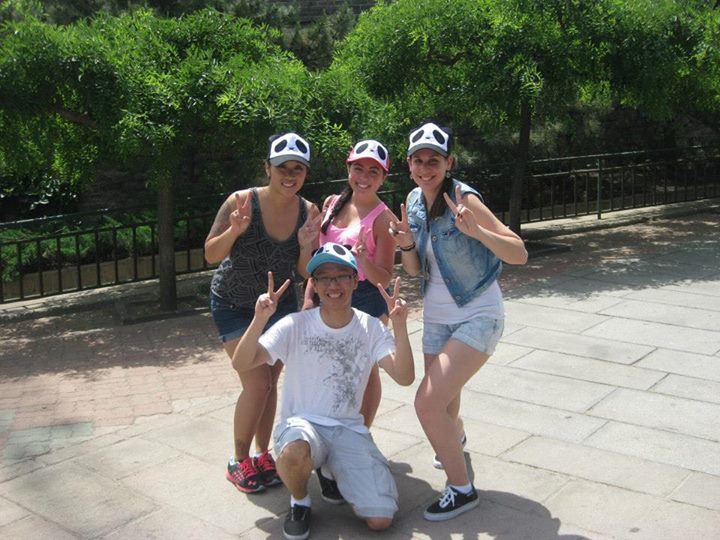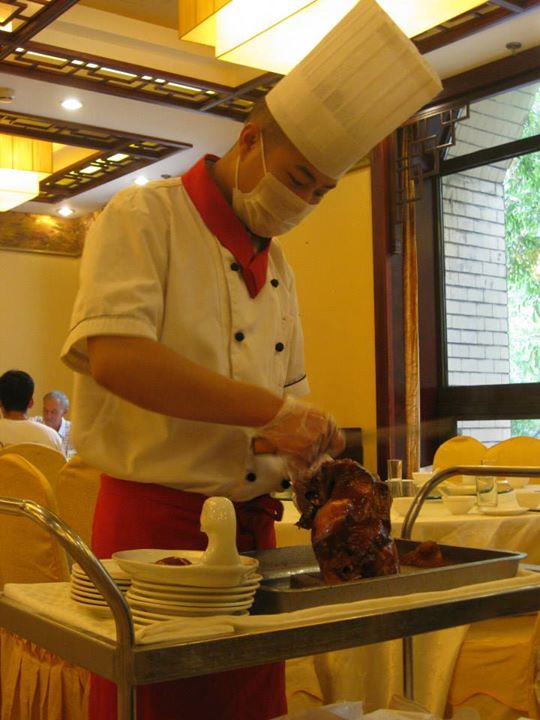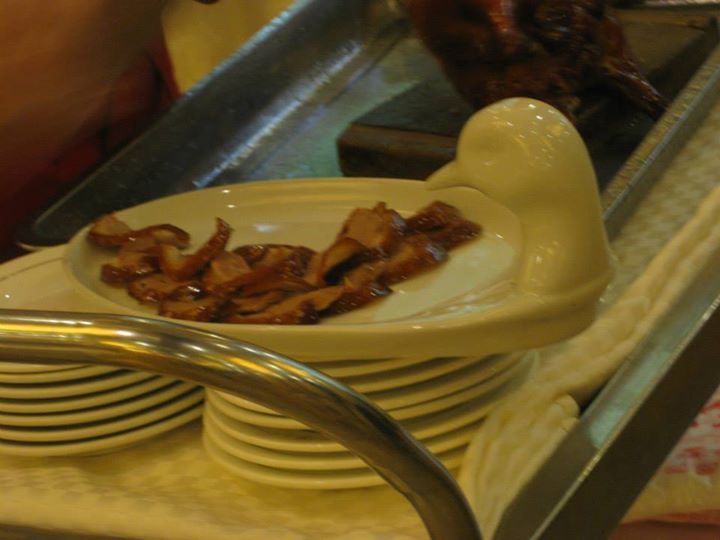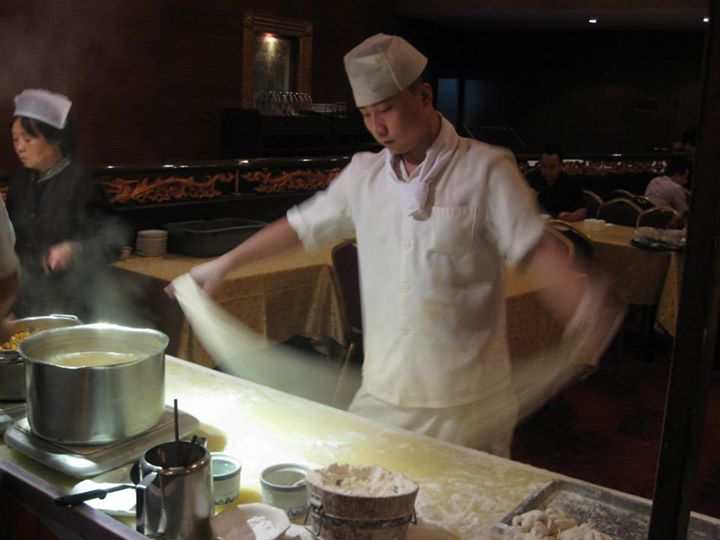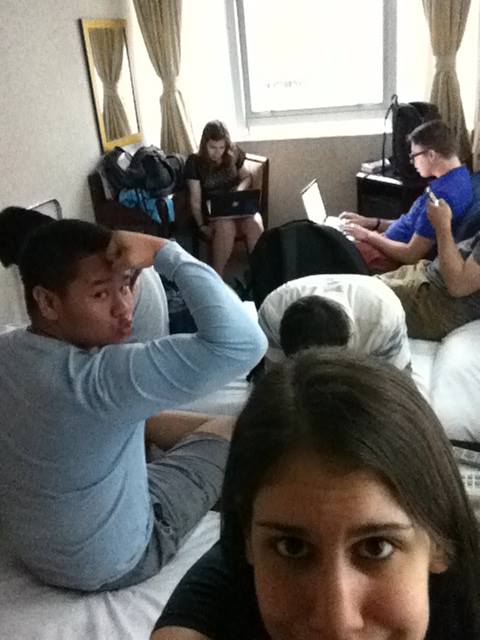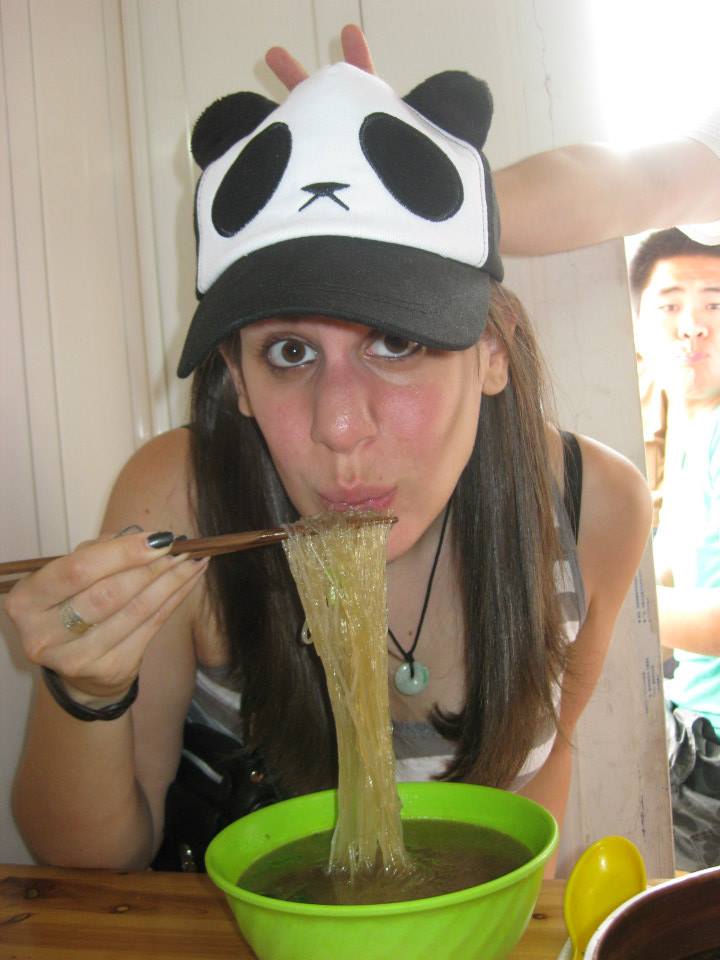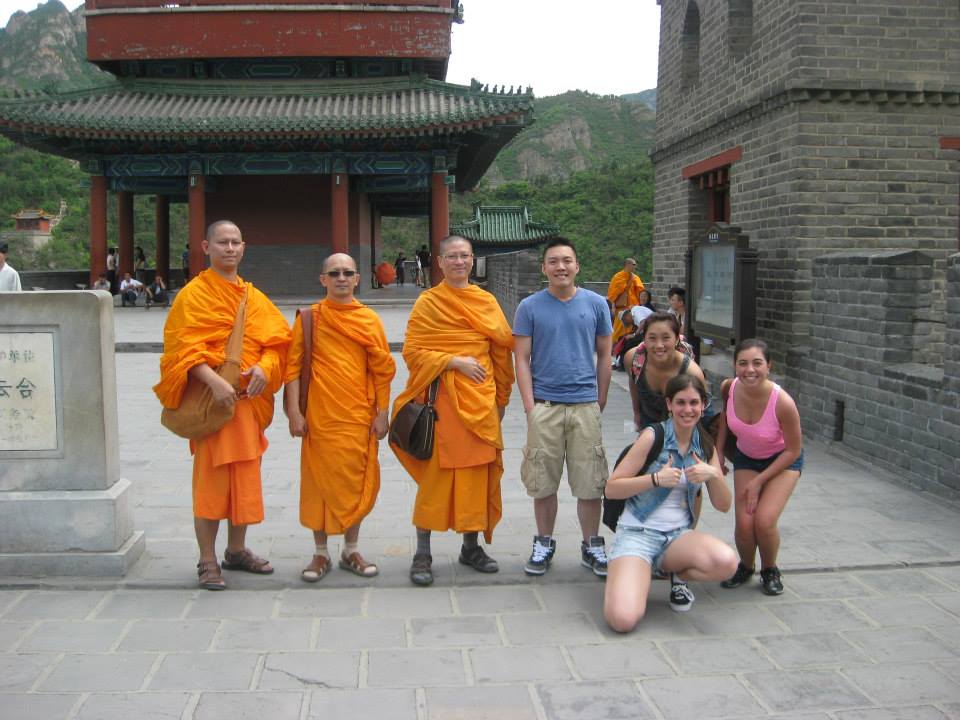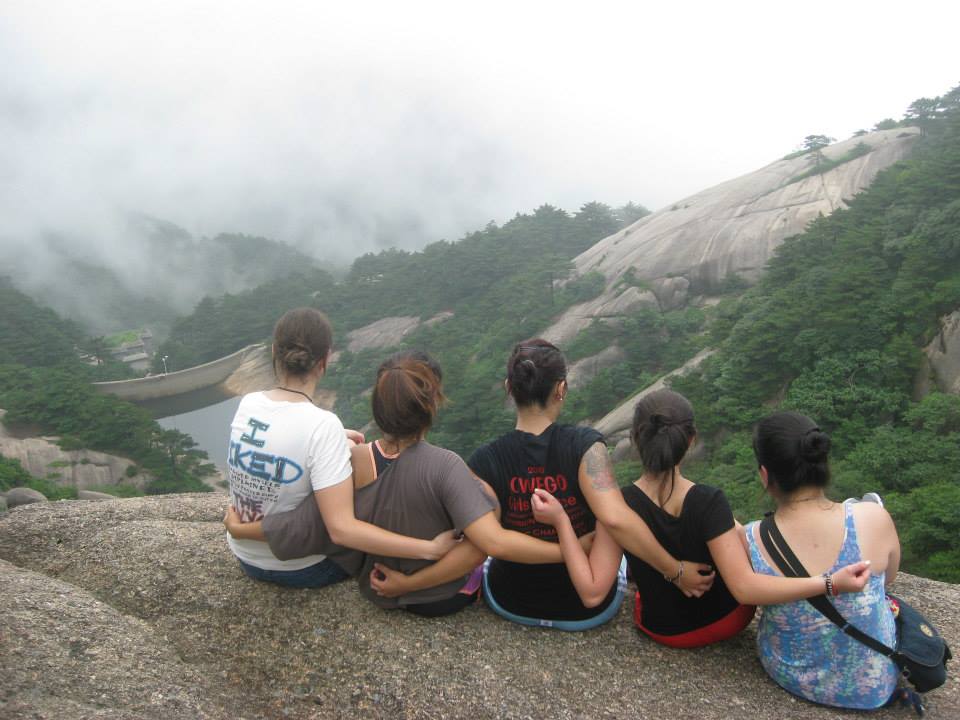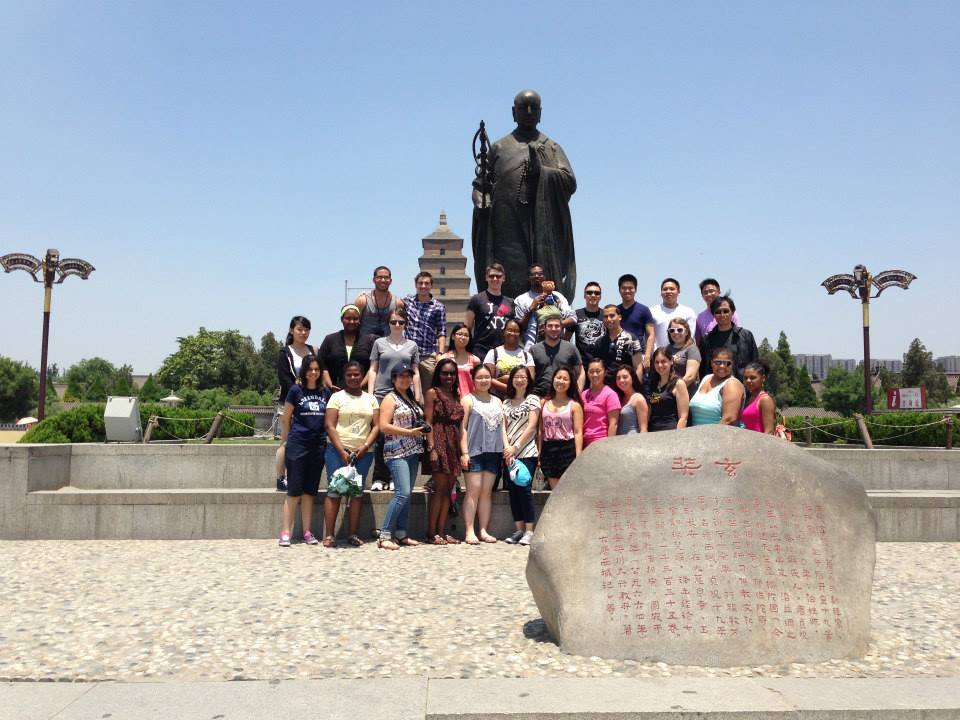At only 21 years old, I am no Confucius. I cannot give you sound and scientific advice that, if followed, will give you guaranteed success and happiness and all the things you’ve ever dreamed possible. I do not know everything; I don’t have all the answers. What I DO have is my own experience. One of my favorite lines from a book came from Arthur Japin’s In Lucia’s Eyes that reads, “The world is full of people who spend their entire lives seeking the miracle of love without ever seeing it. It’s actually very simple and self-evident, except to those who seek it. One need only have a different way of seeing things. That is not something you can teach people. All you can do is tell your story.”
Whether or not you’re looking for love, let that last sentence resonate with you. All you can do is tell your story. This is my story.
Me:

My mother was born and raised in Brazil and moved to the U.S. when she found her future husband who worked in San Francisco at the time. This man, my father, lived in the U.S. for several years already, but actually grew up in San Jose, Costa Rica. Call them star-crossed lovers or whatever you wish, these two foreigners set out to make a new future in a new country for their new daughter, me!
Growing up, it was just my parents and me. No siblings, no relatives nearby, no pets other than the occasional goldfish won at a carnival with a lifespan average of two days. I spent most of my breaks from school traveling, either to Costa Rica or Brazil, to see family and connect with cousins and friends my age, keeping up with both Portuguese and Spanish.
The language was never a barrier to me when I was in another country, but became an issue when I returned to the U.S. and had already started school. I would meet with friends and sometimes be unable to realize that I wasn’t speaking English with them because I was so used to being understood in another language.
In addition to traveling to see relatives, I was fortunate enough to have such hard-working parents who always wanted me to see the world, as was their goal for themselves. We travelled to many places in Europe before I finished the 8th grade, even at which point it was very clear to me that studying abroad would be in my future, no question.
Before starting high school I KNEW I would be gone for sophomore year – I researched study abroad programs and took advantage of them. Initially I wanted to go to countries like Italy or Spain, but I wound up finding a full-ride scholarship opportunity (sponsored by U.S. Congress and German Parliament) to study in Germany, so I applied. As I moved further through the selection process, it became surreal how competitive this was: out of 2500 applicants, only 50 would receive scholarships.
In April 2006, I learned I had received the scholarship. I turned 15 the next month and three months later was off to live in Germany for a year: no family, no friends, and didn’t know a word of German. I was the youngest of all the recipients, and after 11 months I was fluent in German.
Before beginning my time at a University, it was clear to me I would study abroad again. I would have applied for the program right away if it weren’t for the window allowed for it by the study abroad office. I was the first to submit an application for that as well, and in the fall of 2010, I had one of the BEST semesters of my life in Bern, Switzerland. If I hadn’t graduated early, I would have studied abroad again.
I’ve now relocated from Arizona to New York and am pursuing a career here while considering my options for a Master’s abroad – perhaps Switzerland again. I’ve even recently been asked to work with a European magazine for some press releases. My passion is traveling and connecting with people who have experienced this and exchanging cultures. All the traveling and studying abroad I’ve done have brought me here and told me where I’m going. You CAN and SHOULD do it too, and even if traveling isn’t something you want for your career, experiencing it now while you’re young is priceless and will teach you so much about yourself and the world.

Where to look for study abroad programs:
- Consult with your school’s study abroad offices: I realize these offices are becoming smaller and smaller in the U.S., but these guys know what they’re talking about. Ask which kinds of programs are available to you – some may have year standing or GPA requirements. Maybe there’s a specific kind of program you’re searching for – my school offered programs in which you travel with a group of students from the University while learning abroad. My school also offered a program where you didn’t pay a study abroad fee, just the same tuition you were paying while attending the school, which is how I was able to study abroad. Many study abroad offices even have information on scholarships. There are plenty of options; inform yourself!
- Check other programs: This gets tricky and is where fees come into play, sky-rocketing the price of your study abroad experience. My scholarship study abroad program was limited to high school students, but there are other groups out there! Check out: ciee.org or studyabroad.com.
- Maybe you’re interested in the experience of it but don’t want to be studying: Check out things like aupair-world.net where you can be a live-in nanny, earn some money, have a host family that could help teach you more about the culture, and be immersed in your new surroundings. You could take a semester off to do it, do it in the summer, or make time for it after you graduate. Another post-graduate option could be The Peace Corps.
- Degrees and Internships Abroad: These are other ways you can be productive in a new place. You can research schools in the areas you’re most interested in and see their guidelines for international students. My advice for those looking to study in Europe would be to check out bachelorsportal.eu OR mastersportal.eu where you can define your search based on degree subject, country, or tuition and GET THIS: tuition prices elsewhere could be as little as 4% what you’re paying now. What about textbook fees? That’s all an American scam so you can say “bye-bye” to that! As for internships, try goabroad.com/intern-abroad or ask at your school’s study abroad office. HEADS UP: this internship opportunity in China was just tweeted via @InternQueen that may be worthwhile: http://www.crccasia.com/?utm_source=InternQueen&utm_medium=Eblast&utm_campaign=October
5. If all else fails and you just want to travel abroad but want to do it sooner rather than later (excellent choice), check out statravel.com for good deals on flights and hotel information – those prices keep going up these days so it’s good to know of a place that’s dedicated to finding competitive rates. I’d also recommend kayak.com, which is where I found an affordable flight to NYC.

Why:
Even if traveling doesn’t give you insatiable wanderlust as it has to me, at the very least you’ll broaden your horizons, learn something new and take these experiences with you in your next job interview, which could make all the difference. I encourage you to try something new, to not be afraid, and to learn a new language – there’s no better way than immersion! At the risk of sounding cliché, the world is truly your oyster so go out and open it!
—————————————————————————————————————
Posted by Lauren A Ramires. Follow her blog, Twitter, Facebook and Instagram (username: laurenaramires) for more lifestyle and inspiration posts.
If you’re interested in learning more of the experiences of a Peace Corps Volunteer, check out this blog for stories on the daily happenings of a PCV and things you could expect.

